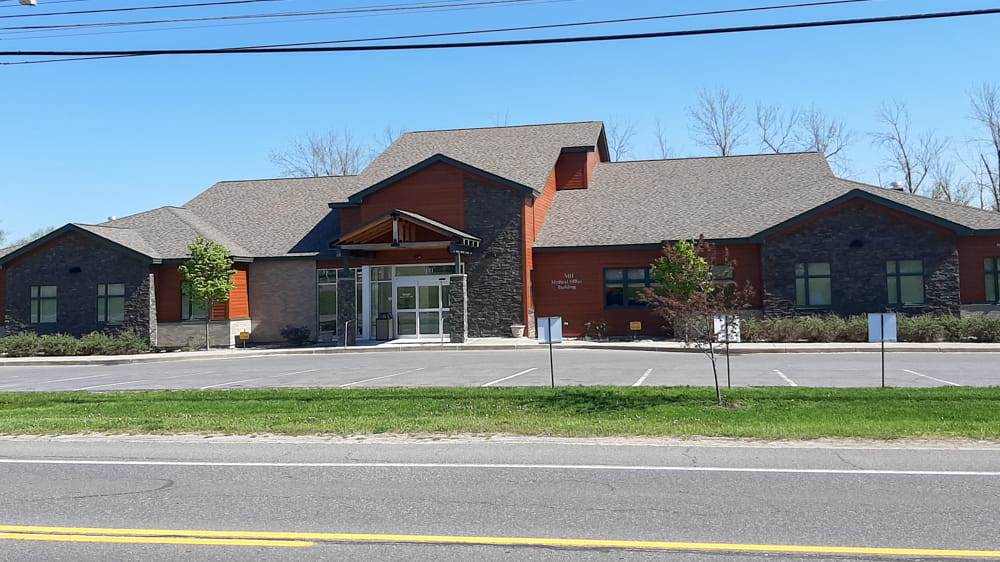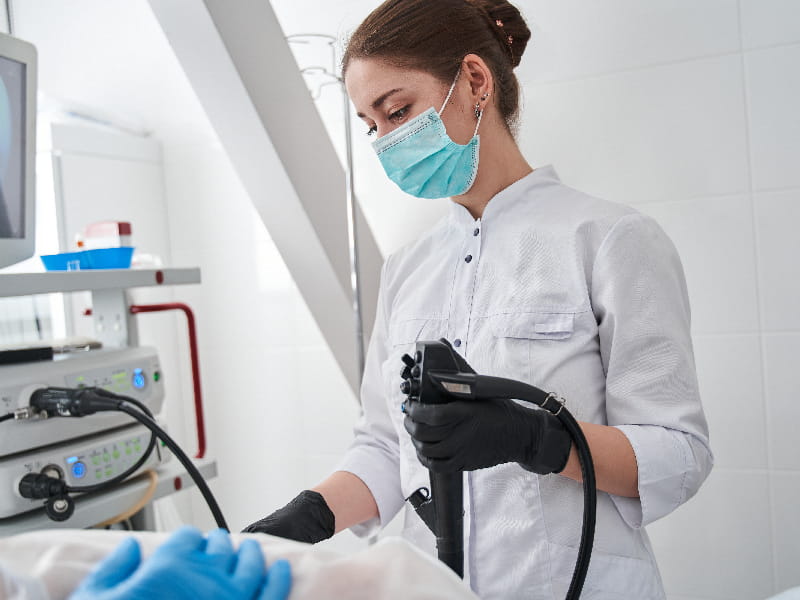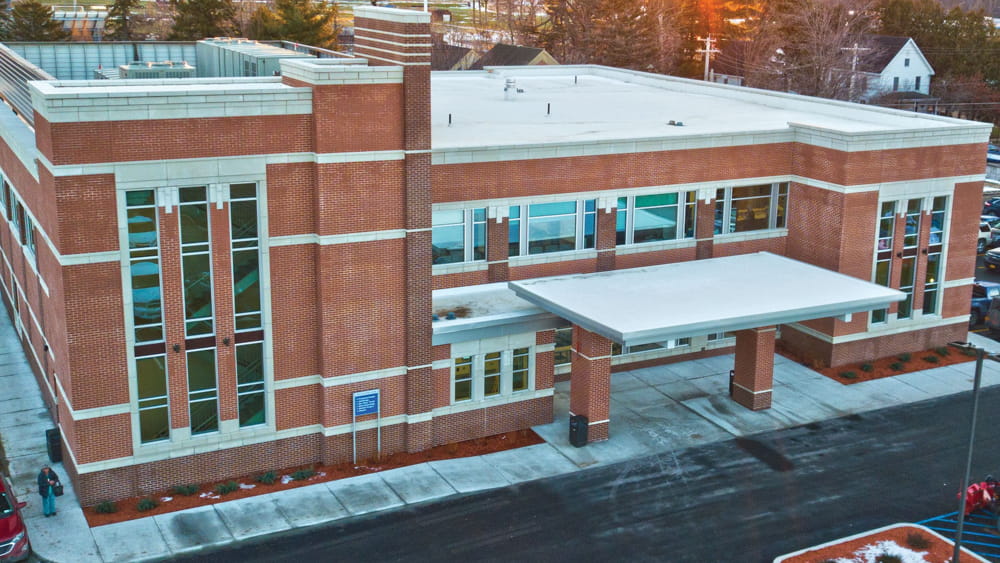

The St. Lawrence Health Gastroenterology and Hepatology team works tirelessly to maintain a commitment of excellence, promoting digestive health through preventative care. Using high-tech services and compassionate care, our team diagnoses and treats a wide range of gastrointestinal and liver disorders. If a gastroenterological concern is bothering you, please schedule an appointment with our team today.
Find a Gastroenterology Location
St. Lawrence Health's gastroenterologists work as a team to provide comprehensive diagnostic, preventative, and treatment options for conditions that may affect your digestive system, including:
We maintain a commitment to excellence when it comes to our patients, and our diagnostic procedures and preventative screenings for polyps and colorectal cancer offer safety and quality that is close to home for patients in the North Country, St. Lawrence, and beyond.
Our team is committed to helping our patients maintain their digestive health through procedures ranging from endoscopic ultrasounds (performed in our Imaging Department) to several types of regular preventative screenings, including colonoscopies.
Colorectal cancer is the fourth most common cancer in the U.S., with 140,000 Americans diagnosed annually. It is also the most preventable form of cancer. To put its preventability in perspective, if everyone age 50 and up were to get screened regularly, 6 out of 10 deaths from colorectal cancer would be prevented, or 60% of the more than 50,000 lives it claims each year. That’s 30,000 people – mothers, fathers, sisters, brothers, children, grandparents – that could potentially be saved, all because of one simple thing: regular screenings.
If you are 45 years or older, now is the time to start looking out for yourself and building preventative habits. In addition to maintaining a healthy lifestyle through exercise, healthy eating, and cutting out smoking and drinking alcohol, the key to preventing colorectal cancer is regular screenings. Despite what most people think, several different kinds of preventative screening tests vary by procedure type and frequency, and most insurance plans, including Medicare, cover these:
If you are one of the 28 million Americans not up-to-date on your colorectal cancer screenings, schedule an appointment today.
While the majority of patients with early stage colorectal cancer will not have any symptoms, anyone who has bloody stools/rectal bleeding, persistent abdominal pain, unexplained anemia, or a persistent change in bowel habits with unintentional weight loss, should contact their provider to have a colonoscopy scheduled.
On average, 1 in 20 Americans will be diagnosed with colorectal cancer at some point in their lives. With many misconceptions about colorectal cancer floating around, it can be understandable why that number is so staggering and why so many fail to get an annual screening.

